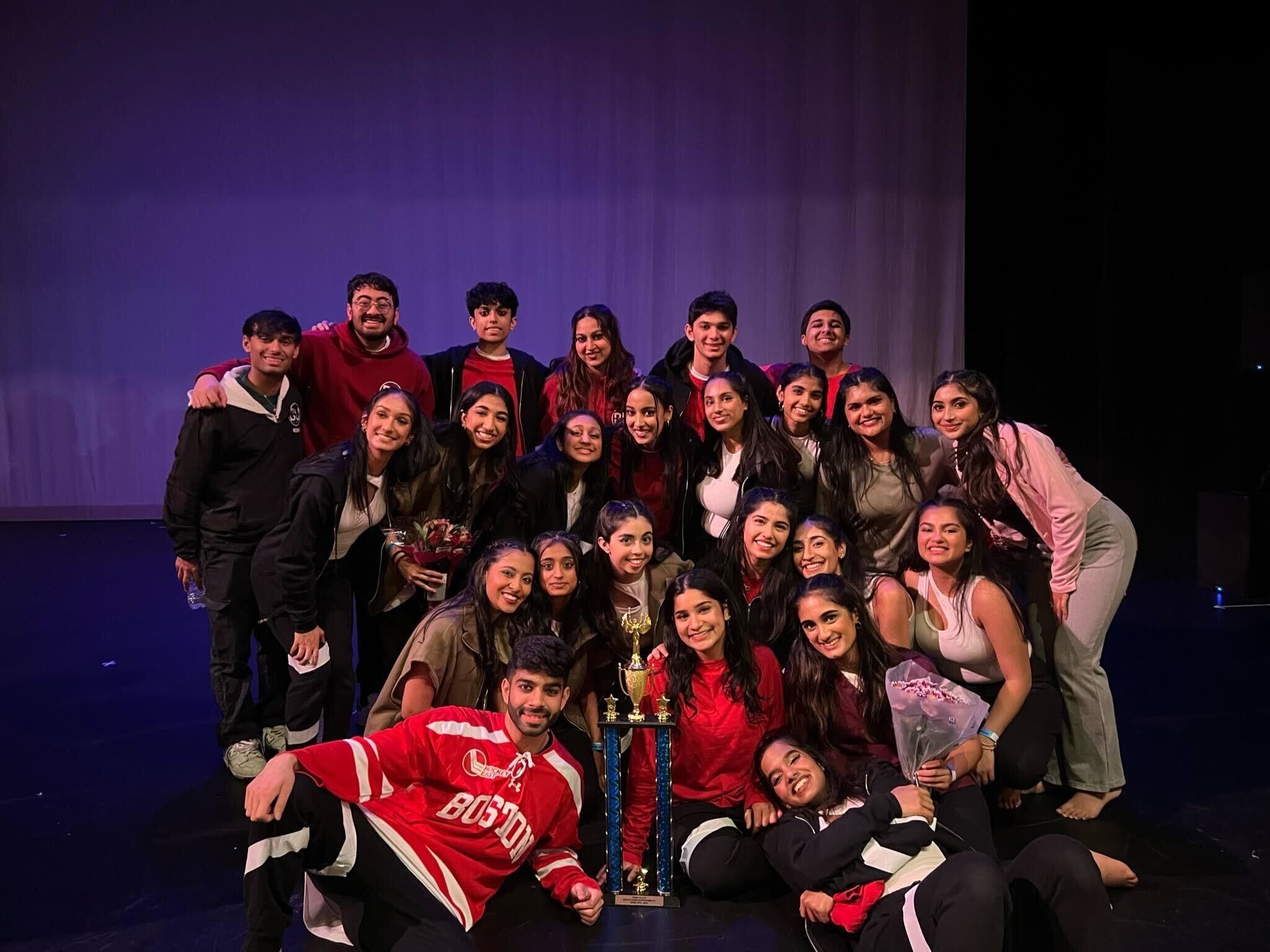Stage lights gleamed purple as four individuals emerged from a triangular formation of still figures. As the beat dropped, the members of Indian dance team Jalwa launched into their performance at South Asian Showdown.
Jalwa is a Bollywood fusion dance team at Boston University that performs both Western and Indian dance styles, including hip hop, bhangra and contemporary. Jalwa is a Boston University group but is open to students from schools in the surrounding Boston area, this year featuring members from Northeastern University and Wellesley College.

The only one of BU’s Indian dance teams to compete at a national level, Jalwa has traveled to Maryland, California and Pennsylvania this year. The group returned to Boston for its final competition of the season on Saturday — the 15th annual South Asian Showdown at the Strand Theatre, a competition between “the best” Indian fusion and Bollywood dance teams — where Jalwa placed third out of seven teams.
The term “Jalwa” translates to “passion” in Hindi. The two biggest sentiments Jalwa members share are passion for dance and for the bond they create, said Maanav Amin, a junior in Questrom School of Business and one of the team’s three team captains.
Developing a Jalwa performance can span an entire academic year. Amin said he and his co-captains — Esha Hande, a sophomore in Sargent College of Health and Rehabilitation Sciences, and Ananya Oka, a third-year at Northeastern studying business administration — began preparing for the 2023-2024 competition season almost four months before they held tryouts.
“First semester was just teaching all the choreography. Winter break was solidifying the choreography and finalizing formations and leads,” Oka said. “Spring semester is putting it all together.”
A Jalwa performance is not an average dance number — it’s a 10 minute-long production featuring a narrative storyline. Amin said the captains brainstormed a multitude of ideas for this season, ranging from movies to novels to video games. This year, their top three choices for South Asian Showdown were three movies: “The Truman Show,” “Rise of the Guardians” and “Escape Room.”
Ultimately, they chose to base their performance on the 2019 film “Escape Room,” about six strangers who fight to survive in a series of deadly escape rooms.
Kavia Mallik, a sophomore in Questrom and a member of Jalwa, said she enjoyed the “Escape Room” theme choice. While other teams often draw inspiration from well-known movies, she said that a less mainstream basis allows the team to “create our own story.”
The dance team’s take on the film revolved around four characters — portrayed by Amin, Hande, Teresa Joseph and Henna Nair — who compete to escape multiple challenge rooms.
“That was probably our best set that we’ve put on so far,” Hande said about Jalwa’s performance Saturday. “It was just so much fun too, because Boston’s our city.”
Jalwa had only five returning members this year, so Amin said Jalwa took almost 20 “newbies” on the team to fill the gaps left by last year’s graduates.
Amin described the new members as “amazing dancers and amazing people,” and said that welcoming them was “a core memory” of the season because they were rebuilding their team from the ground up.
Oka, one of Jalwa’s three captains, travels from Northeastern to be a part of Jalwa. Oka — who has been dancing since she was four years old — joined Jalwa her freshman year because she had been searching for a more competitive team than the ones at Northeastern.
Oka said that she has learned a lot during her time in Jalwa, and it has allowed her to balance creativity with being a student.
“Dance was always a part of my life,” she said. “As I continue that, even while I was away from home, it helped with homesickness.”
She also said the team introduced her to people who are now her best friends.
“You can really find family anywhere with a shared interest and passion,” Oka said.
For Amin, joining Jalwa — his first experience with dance — was an unexpected decision that has changed his college experience.
“At the end of the day, we’re more than a team,” Amin said. “We’re like a family.”






















































































































